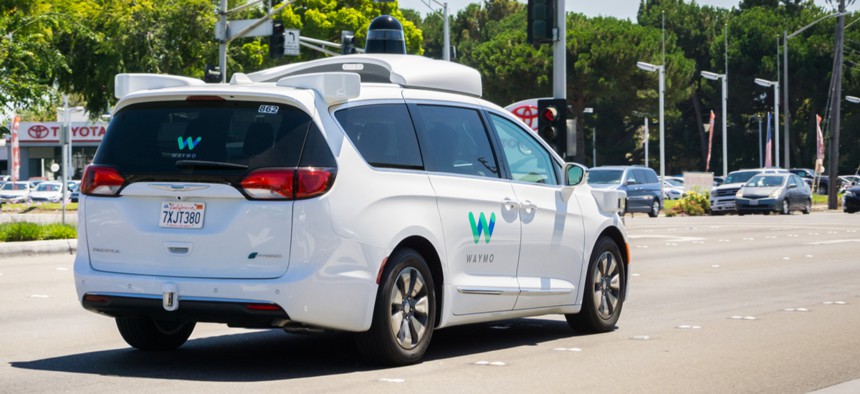Connecting state and local government leaders
An Internet of Things CEO suggests localities consider future trends or face a transit plan that is DOA.
According to the U.S. Census Bureau, the average commute time to work in the United States is 26.4 minutes each way. In 1980, American workers commuted on average 21.7 minutes each way. Many could use this trend as an argument in favor of implementing mass transit for a specific community. Commute times are increasing nationwide, so wouldn’t a mass transit solution alleviate traffic and eliminate the need to commute by car altogether?
The problem with applying a broad trend to a narrow population segment (like that of a metro of less than 2 million people) is that it often doesn’t translate. Individualization is an inherent requirement of mass transportation within a city - each solution is dependent upon the design and infrastructure already in place.
Mass transit has traditionally played out as a binary conversation. Cities either oppose mass transit with a deep philosophical hatred or rally that it will “save the city.” Yet no “one-size-fits-all” mass transit solution exists that translates across all population densities, demographics and geographies. Thus, highly specific community conversations are a fundamental requirement for exploring the options.
Before commissioning a feasibility study, localities considering mass transit implementation should ask themselves several questions.
1.) How will disruptive technologies impact your community?
Autonomous vehicles (more commonly known as self-driving cars) are no longer an object of science fiction novels. Technology power players like Google and Tesla aren’t the only ones making the concept a reality. Household names like Toyota, Ford and Nissan are currently working on self-driving cars, though opinions differ on when they’ll hit the streets. Like how Uber and Lyft’s disruption of the taxi industry has differed community to community, cities will not respond to autonomous vehicles in unison.
Adoption of new technologies depends on five factors: relative advantage, compatibility, complexity, observability and trialability. If the population feels the new technology is too complex or inconsistent with cultural and societal norms (compatibility), they will likely be hard-pressed to observe others using the product or too intimidated to trial the product. Thus, despite the new technology’s superiority to old technology (relative advantage), adoption rate among the population will be low and slow. On the opposite end, if all five factors are in place within your community, driverless technology adoption will likely occur swiftly.
2.) At what rate is the nature of work changing in your community?
A geographic redistribution of where people live and work is taking place. Many businesses view relocating to the suburbs as advantageous for a variety of reasons, including proximity to their workforce and lower taxes. As businesses attempt to perfect the formula for engaged employees, company policies like remote working and flexible hours are trending upward. According to a Society for Human Resource Management survey, 60 percent of companies offer employees work-from-home opportunities, compared to just 20 percent in 1996. The rise of the remote workforce has impacted office design. In 2010, the average recommended office space allocation per employee was 225 square feet per employee. CoreNet, a global corporate real estate firm, projects that in 2017, this recommendation will decrease to 151 square feet. As offices shrink and the traditional 9-to-5 workday disappears, travel at peak times will likely be affected. To what degree is yet to be seen.
3.) What is your definition of mass transit and how will it change?
“Mass transit” is not necessarily synonymous with “train.” As discussed previously, a mass transit solution must be designed to fit a city, not the other way around. Additionally, a mass transit solution must prove sustainable for future generations. As Generation Z prepares to enter the workforce, cities should examine the values that pervade this segment of the population. Gen Z-ers, the oldest of which are currently 21 and the youngest only seven, have never known a world without Google, cell phones and wireless internet. Technology has produced an efficiency-oriented mindset within these young people, who would rather ask Siri to look up a phone number than manually search for it. This generation doesn’t prefer personalized products and experiences, it expects them. Cities evaluating mass transit options should take Gen Z’s core values into account. Predetermined route lines and the traditional definition of “mass” transportation may not resonate with your city’s future workforce. What solutions will?
Implementation of mass transit is expensive, but in some areas, the benefits outweigh the cost. Yet as the world speeds toward a monumental shift in how we live, work and commute, thoughtful conversations in cities of all sizes about the future of transportation is essential.
John McDonald is the CEO of IoT company ClearObject, headquartered in Fishers, Indiana.
NEXT STORY: Demystifying Austin’s Mobility Bond



